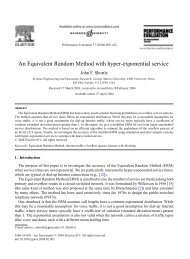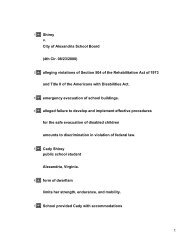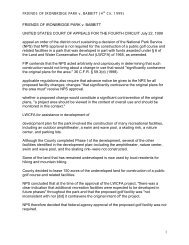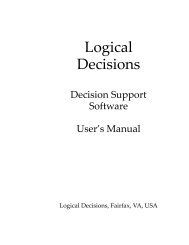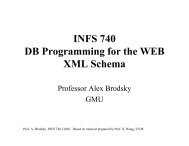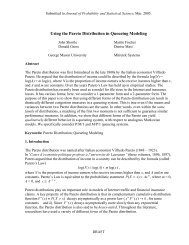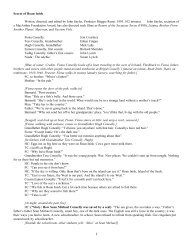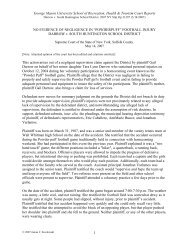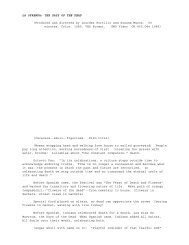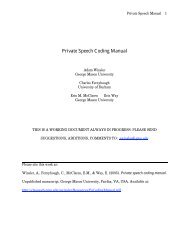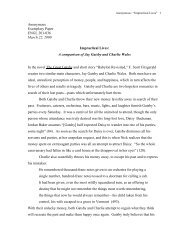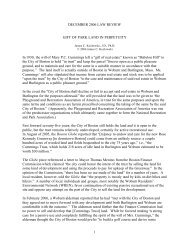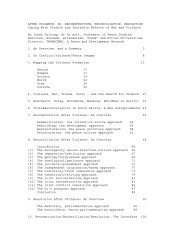Naturist Society Inc. v. Fillyaw, 858 F.Supp. 1559 - Classweb
Naturist Society Inc. v. Fillyaw, 858 F.Supp. 1559 - Classweb
Naturist Society Inc. v. Fillyaw, 858 F.Supp. 1559 - Classweb
Create successful ePaper yourself
Turn your PDF publications into a flip-book with our unique Google optimized e-Paper software.
distributed. Recognizing that the administration of a censorship system for motion pictures<br />
presents peculiar dangers to constitutionally protected speech, the Supreme Court held that a<br />
noncriminal process which requires the prior submission of a film to a censor avoids<br />
constitutional infirmity only if it takes place under procedural safeguards designed to obviate the<br />
dangers of a censorship system. To protect exhibitors from unduly cumbersome and timeconsuming<br />
procedures, which in many cases would effectively render the censor's determination<br />
final, the Supreme Court required that: (1) the state initiate judicial action to restrain exhibition<br />
of the challenged film and bear the burden of proof; (2) the exhibition of the film not be delayed<br />
by a protracted review process; and (3) judicial review be prompt. Freedman, 380 U.S., at 56-60,<br />
85 S.Ct., at 738-739.<br />
Because the regulations at issue here have so little in common with the classic "prior<br />
restraint," and do not present any of the "dangers of a censorship system," the Court does not<br />
believe the full procedural protections set forth in Freedman are required. See FW/PBS, <strong>Inc</strong>. v.<br />
City of Dallas, 493 U.S. 215, 228, 110 S.Ct. 596, 606, 107 L.Ed.2d 603 (1990) (Plurality<br />
opinion). However, the following procedural safeguards are essential: (1) the licensor must<br />
make the decision whether to issue the license within a specified and reasonable time period<br />
during which the status quo is maintained; and (2) there must be the possibility of prompt<br />
review in the event that the license is erroneously denied. Id. The permitting procedure<br />
challenged in this case provides for neither of these safeguards.<br />
Whereas both the former and amended versions of Rule 16D-2.007 vest park managers<br />
with untoward discretion to deny permits, and fail to provide safeguards adequate to<br />
ensure against abuse of that discretion, the Court finds that these regulations are facially<br />
unconstitutional.<br />
B. Qualified Immunity<br />
Finally, the Court must determine whether defendant <strong>Fillyaw</strong> is entitled to qualified<br />
immunity with respect to the claims against him in his individual capacity. Public officials are<br />
immune in their individual capacities from suits for damages "insofar as their conduct does not<br />
violate clearly established<br />
Page 1571<br />
statutory or constitutional rights of which a reasonable person should have known." Harlow v.<br />
Fitzgerald, 457 U.S. 800, 818, 102 S.Ct. 2727, 2738, 73 L.Ed.2d 396 (1982). This standard<br />
protects "all but the plainly incompetent or those who knowingly violate the law." Malley v.<br />
Briggs, 475 U.S. 335, 341, 106 S.Ct. 1092, 1096, 89 L.Ed.2d 271 (1986).<br />
The Eleventh Circuit has expressed the Harlow standard as two requirements. <strong>Naturist</strong>, 958<br />
F.2d. 1515, at 1523. First, the public official must show that the acts complained of were "within<br />
the scope of his discretionary authority when the allegedly wrongful acts occurred." Id. Once the<br />
defendant public official has satisfied this burden, the burden then shifts to the plaintiff to show<br />
that the public official's actions "violated clearly established constitutional law." Id. (quoting<br />
Rich v. Dollar, 841 F.2d 1558, 1563-64 (11th Cir.1988)).



